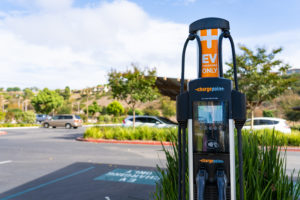CEA’s customers have expressed a lot of interest in electric vehicles (EVs) – that’s music to our ears! Below you will find some basic information about EVs as well as links to various funding and support resources.
All-EVs run on electricity only. They are propelled by one or more electric motors powered by rechargeable battery packs. EVs have several advantages over conventional vehicles:
Below are links to various consumer resources for energy efficiency and electric vehicle rebates, and incentives. These programs are run by the parties listed, and not CEA, we recommend you contact the various organizations directly for more information. As additional federal funding is distributed, further resources may become available.
Visit ElectricForAll to find more myth-busting facts about EVs!

Try this vehicle cost calculator to determine your potential savings from switching to an EV!

